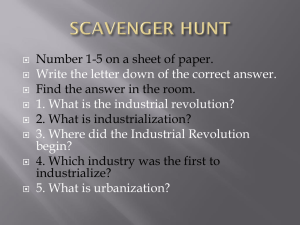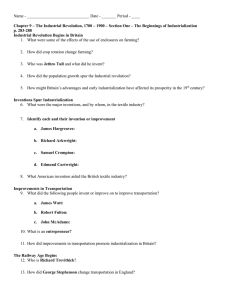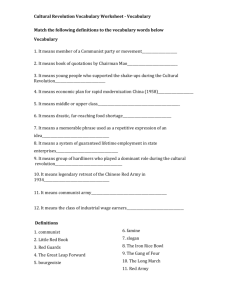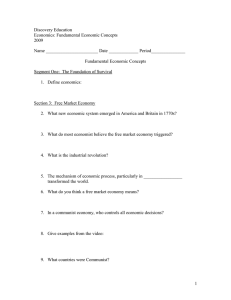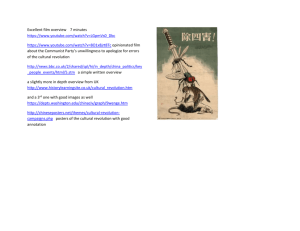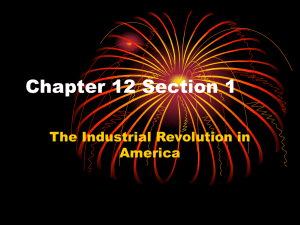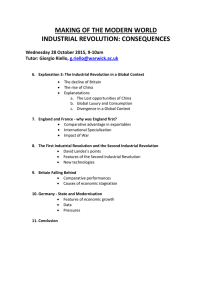Industrial & Agricultural Revolution Exam Questions
advertisement
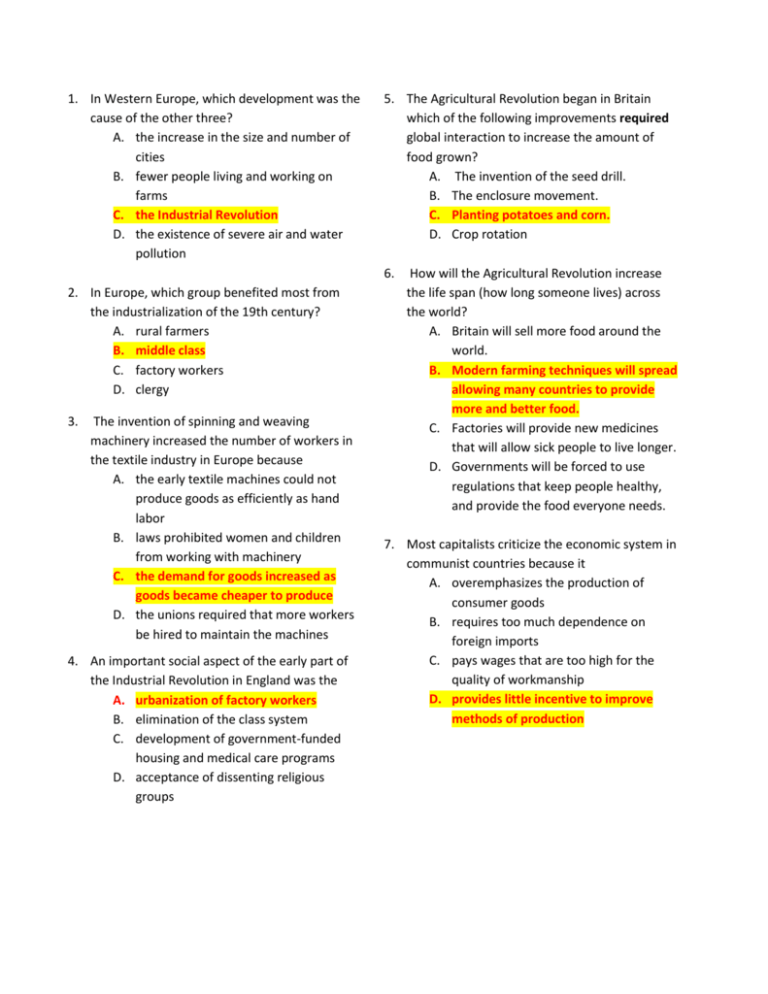
1. In Western Europe, which development was the cause of the other three? A. the increase in the size and number of cities B. fewer people living and working on farms C. the Industrial Revolution D. the existence of severe air and water pollution 5. The Agricultural Revolution began in Britain which of the following improvements required global interaction to increase the amount of food grown? A. The invention of the seed drill. B. The enclosure movement. C. Planting potatoes and corn. D. Crop rotation 6. 2. In Europe, which group benefited most from the industrialization of the 19th century? A. rural farmers B. middle class C. factory workers D. clergy 3. The invention of spinning and weaving machinery increased the number of workers in the textile industry in Europe because A. the early textile machines could not produce goods as efficiently as hand labor B. laws prohibited women and children from working with machinery C. the demand for goods increased as goods became cheaper to produce D. the unions required that more workers be hired to maintain the machines 4. An important social aspect of the early part of the Industrial Revolution in England was the A. urbanization of factory workers B. elimination of the class system C. development of government-funded housing and medical care programs D. acceptance of dissenting religious groups How will the Agricultural Revolution increase the life span (how long someone lives) across the world? A. Britain will sell more food around the world. B. Modern farming techniques will spread allowing many countries to provide more and better food. C. Factories will provide new medicines that will allow sick people to live longer. D. Governments will be forced to use regulations that keep people healthy, and provide the food everyone needs. 7. Most capitalists criticize the economic system in communist countries because it A. overemphasizes the production of consumer goods B. requires too much dependence on foreign imports C. pays wages that are too high for the quality of workmanship D. provides little incentive to improve methods of production 8. Most communist criticize the economic system in capitalist countries because it A. Concentrates wealth and power in the hands of a few. B. Requires trade with countries. C. There are few risk takers in such a system so few new ideas turn into products. D. The government is too involved in the distribution of wealth. 9. The most basic difference between socialism and capitalism concerns the issue of A. the introduction of modern technology B. private versus public ownership of industry C. dealing with inflation D. support for public education 10. In which of the following economies will choice of job be the most limited? A. Market B. Mixed C. Command D. Traditional

